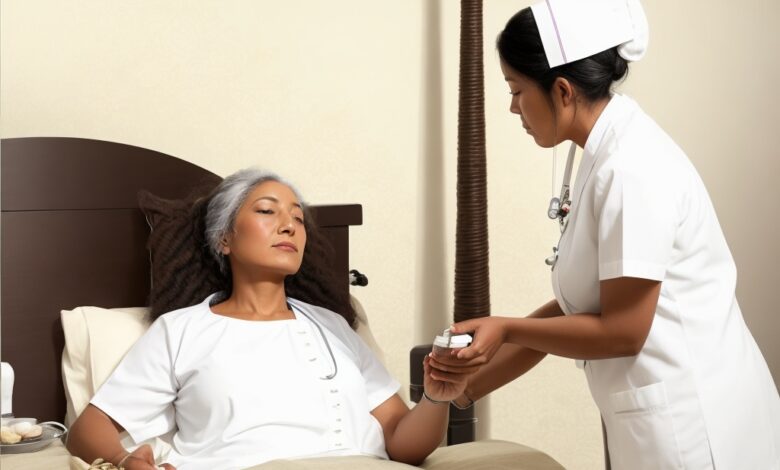Patient Education Strategies in Nursing Practice

Table of Contents
Hey there, ever wonder why your nurse spends so much time explaining how to take your meds or why certain procedures are needed? Welcome to the world of patient education! Today, nursing isn’t just about administering meds or taking your vitals. It’s all about ensuring you, the patient, are well-informed and empowered. So, let’s embark on this journey and learn why patient education in nursing is such a game changer.
The Need for Patient Education
Imagine getting discharged from the hospital with a fancy new prescription but having no clue what to do next. Scary, right? There’s a pesky little statistic out there that says many folks end up back in hospital beds because they weren’t clued in on how to manage their health post-discharge.
In fact, patient education isn’t just a feel-good strategy. It’s a lifesaver. When patients know the ins and outs of their health condition, magic happens: fewer complications, a decline in panicked midnight ER visits, and a surge in confident self-care. Plus, it helps your pocket! Fewer readmissions mean fewer bills. So, for a healthier you and a happier bank account, patient education is a win-win.
Foundational Concepts of Patient Education
Now, I hear you: “Education sounds great, but how does it work?” Well, settle in, because this is where it gets juicy. Patient education isn’t a one-size-fits-all deal. It’s tailored, just for you. Think of it as a Netflix recommendation but for your health!
Three key areas guide this:
- Cognitive (the brainy stuff) – This is all about knowledge. You learn the “whats” and “whys” of your condition.
- Psychomotor (the action-packed stuff) – Here, you get hands-on skills. Think of it as a DIY workshop, but for health.
- Affective (the feels) – This one’s all about attitudes and emotions. It’s the pep talk, the motivation booster.
But wait, there’s a twist! Not everyone’s ready to learn. Some barriers, like fear or stress, can play spoilsport. So, before diving into the teaching pool, nurses gauge your learning mood.
Key Principles of Effective Education
Picture this: you’re at the hospital, and a nurse starts throwing medical jargon at you. “Take this antihypertensive med for your hypertension.” Say what now?
Effective patient education is like having a chat with a friend. It’s simple, relatable, and, dare I say, fun! A good rule of thumb: if a ten-year-old can’t understand it, it’s too complex.
But it’s not just about the talk. It’s about the listen. By actively involving you in the process and checking in frequently, nurses make sure you’re on board. They also adapt teaching methods to your style. Are you a reader, a watcher, or a doer? They’ve got you covered!
Best Practices in Delivering Patient Education
Alright, so now we know patient education should be clear and tailored. But how’s it done? In a world where one YouTube video can teach you anything from baking to moonwalking, nurses have caught on!
Individualized instruction: This is all about making sure it’s just right for you. Got diabetes? You’ll get specifics on sugar levels, not a generic health talk.
Use of multimedia: Remember the YouTube analogy? Nurses now use videos, animations, and cool graphics to make learning engaging.
Interactive sessions: Here, group discussions come into play. Sometimes, hearing a fellow patient’s story can be enlightening.
Written instructions: Old school, but gold. Handy pamphlets or booklets ensure you have a ready reckoner.
Cultural competence: Your background matters. If you celebrate Diwali, a nurse won’t tell you to abstain from sweets. Instead, they might suggest healthier alternatives to enjoy the festival.
Patient Education Across Different Care Settings
Picture this: you’re recovering from surgery, and there’s this little voice (your nurse) guiding you every step of the way. That’s patient education in the inpatient setting. They’re there for your pre-op pep talks and post-op care plans.
Got an appointment with your doc? In the outpatient setting, those scheduled sessions are gold. They’re a chance to reinforce, refresh, and renew your health knowledge.
Ever had a nurse visit at home? In home care, they dive into the nitty-gritty. From safety checks to wound care, they’ve got your back.
And in today’s digital age, even when they’re miles away, nurses can still be right there with you, thanks to telehealth.
Overcoming Challenges in Patient Education
Life’s not always a bed of roses, and patient education has its thorns. Language barriers, time constraints, and even our good ol’ forgetfulness can trip us up.
But here’s the silver lining: for every challenge, there’s a creative solution. Whether it’s interpreters breaking language barriers, visual aids simplifying complex topics, or involving family to lend an extra ear, nurses have a bag full of tricks.
Evaluating the Effectiveness of Patient Education
Alright, pop quiz time! (Kidding!) But in the world of patient education, feedback is golden. Did the info stick? Are there fewer midnight ER dashes?
Nurses are always in detective mode, tracking improvements and tweaking their methods. Your journey, dear reader, helps refine the path for others.
Future Trends in Patient Education
Drumroll, please! As we look into the crystal ball of healthcare, things look exciting. We’re talking digital health tools (health tracking apps, anyone?), gamification (learning about diabetes while playing a game? Sign us up!), AI integration (personalized plans based on your health data), and teamwork between healthcare pros.
The future’s bright, and it’s all about you!
The Role of Technology in Patient Education
Hang on to your hats, folks! The tech wave has hit the shores of patient education, and it’s causing quite the splash. Now, I’m not saying nurses are turning into tech wizards, but there’s no denying that gadgets and gizmos are making their mark.
Ever had a niggling question at 3 am about that new med? Enter healthcare apps. With a swipe and a tap, you’re suddenly equipped with a world of knowledge. And remember those virtual reality (VR) games that transport you to outer space or deep under the sea? Well, some genius thought, “Why not use VR for patient education?” And voila! Now, there are VR experiences that can help you understand intricate surgeries or see the harmful effects of smoking first-hand. Talk about a wake-up call!
But wait, it’s not all futuristic and fancy. Simple text message reminders can play hero too. A little buzz to remind you of your meds can go a long way.
Trust in the Process: The Nurse-Patient Bond
Remember that one teacher in school who believed in you, who made learning feel like a breeze? In the world of healthcare, that’s your nurse. It’s not just about spewing facts; it’s about building a bond.
This trust isn’t built overnight. Every chat, every check-in, every reassuring pat on the back adds a brick to this fortress of faith. And trust me, when trust enters the scene, learning isn’t far behind. Feeling safe and understood, patients are more likely to soak in information and ask those burning questions.
Taking the Reins: Empowering YOU in Healthcare
Time for a little pep talk! At the end of the day, it’s YOUR health. And while these educational strategies are fabulous, the power truly lies with you. The goal of all this teaching? To make you the captain of your health ship.
From understanding the maze of meds to making those tricky lifestyle changes, being in the know gives you control. And with great power comes…well, great health!
Bridging the Gap with Family Involvement
Let’s talk about your cheer squad – your family! They laugh with you, cry with you, and yes, they worry about you. In the grand scheme of patient education, they play a pivotal role.
Family members aren’t just passive spectators. They’re co-pilots. Whether it’s remembering instructions, offering emotional support, or just being a sounding board, they amplify the effects of patient education. So, hats off to the unsung heroes!
Conclusion : The Future is Educated!
In wrapping up our deep dive into patient education, one thing’s crystal clear: informed patients make for healthier futures. With a cocktail of tech, trust, empowerment, and family support, nurses are crafting education strategies that resonate and revolutionize.
So next time you’re at the clinic or hospital, and your nurse starts discussing your health, lean in, listen, and learn. Your future self will thank you!
Epilogue: Your Health Story
Each of us has a unique health story to tell. As you turn the pages of your own narrative, remember that knowledge is your most powerful tool. Embrace it, cherish it, and share it. Here’s to a well-informed, healthful journey ahead!




